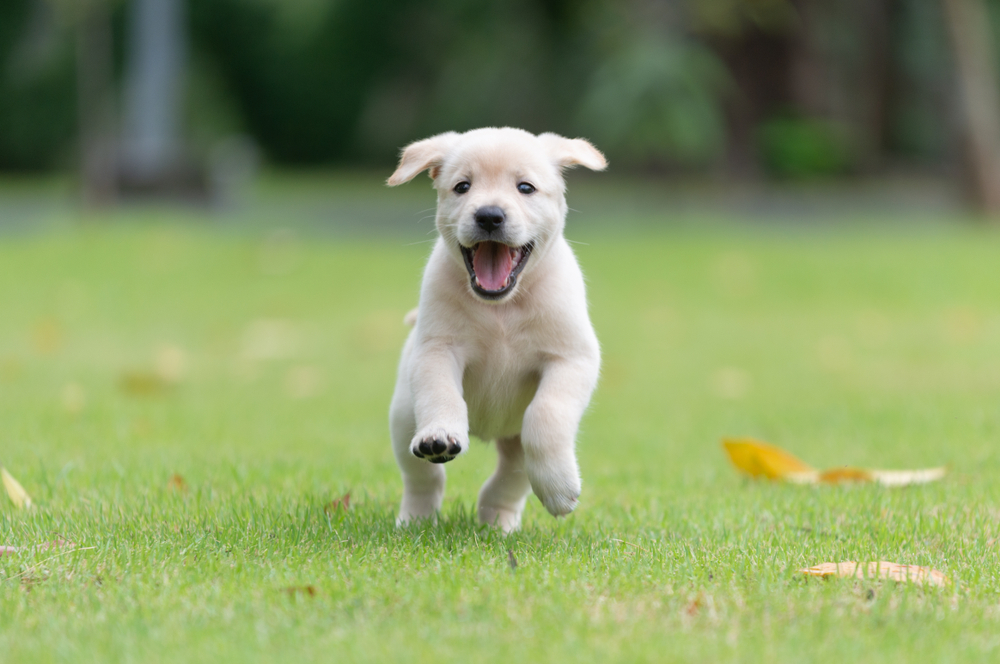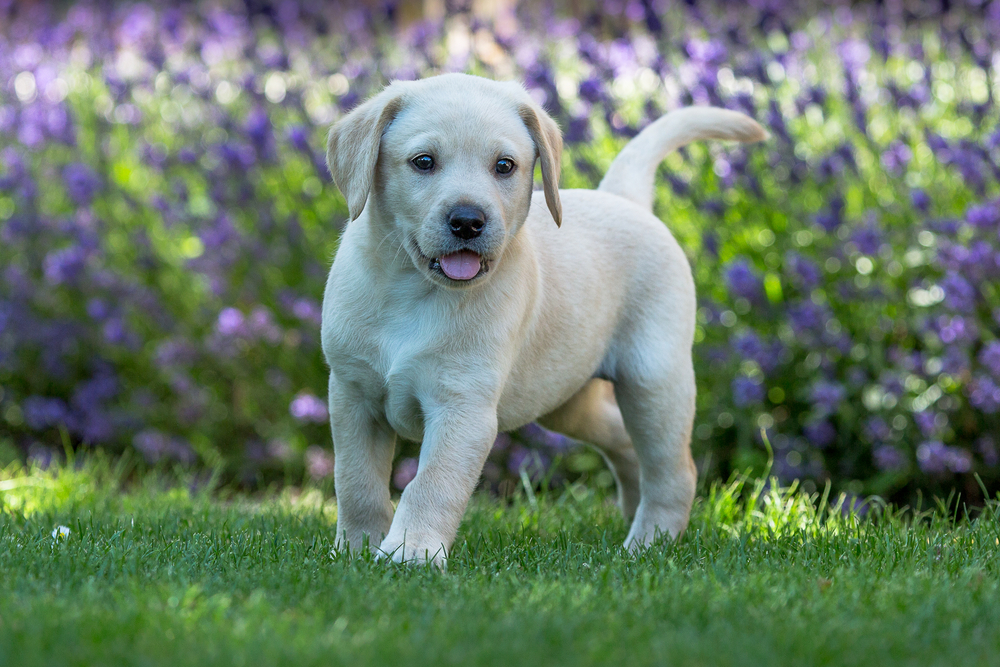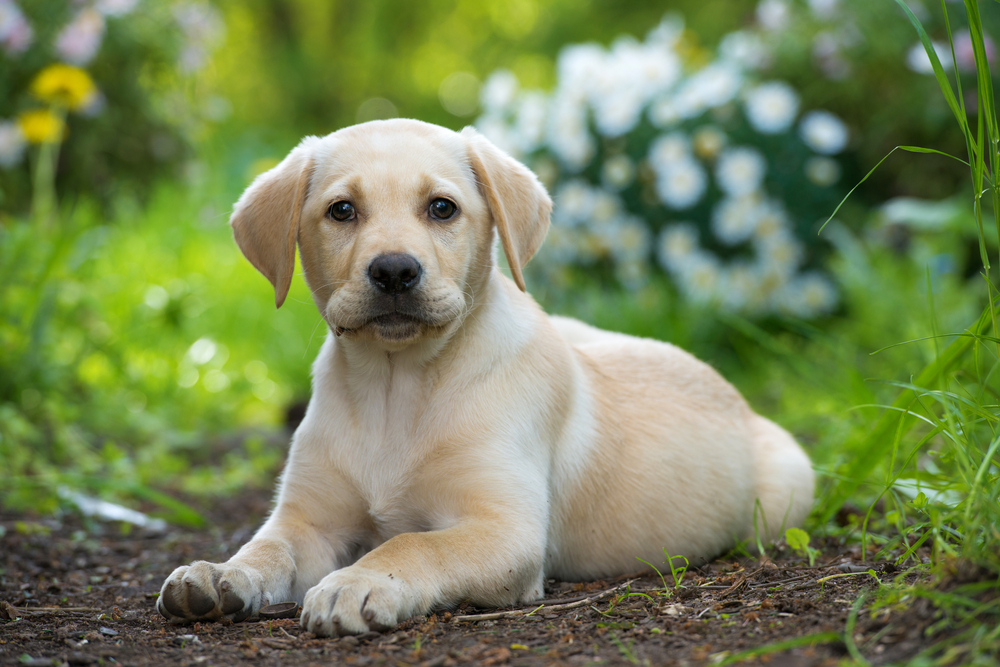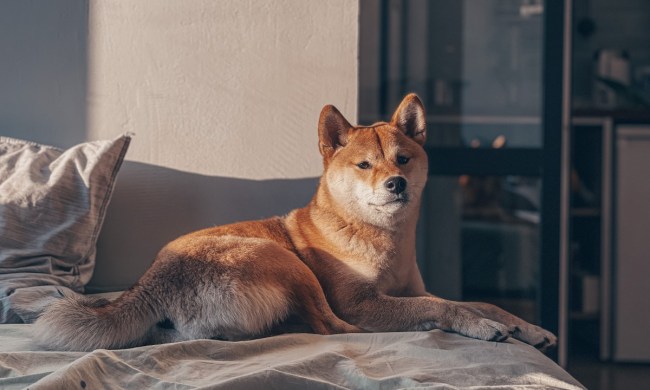Congratulations on your recently adopted Labrador retriever puppy! Not only are they one of the most adorable dog breeds; they’re also one of the most popular. According to research from the American Kennel Club (AKC), the two most popular dog breeds are Labrador retrievers and French bulldogs. In fact, the Labrador retriever has held the coveted number-one slot for the past 30 years in a row. Last year alone, the AKC registered over 98,300 Labs. If you’ve ever wondered how to train a Labrador puppy to be a good dog, you’ve come to the right place. Here’s what you need to know about training your new fur baby.

Are Lab puppies easy to train?
The Labrador retriever got its start not in Labrador, but on the island of Newfoundland next door, part of the same Canadian province. Modern-day Labs owe their drive and work ethic to their ancestors, who were originally bred as working dogs in the 1500s. With their dense double coats and innate love of water, Labs worked alongside fishermen, helping them retrieve their nets and swimming after escaped fish.
Intelligent, sociable, and eager to please, Labradors are the most popular dog in the United States. They rank highly on the trainability scale because they’re extremely motivated to please their pet parents. That being said, their intelligence can pose a problem if you spend a lot of time away from home. If your Lab puppy doesn’t have enough exercise and mental stimulation, he won’t be able to expend all that excess energy, which can result in destructive behaviors like chewing on furniture and nonstop barking.
How long does it take to train a Lab puppy?
According to the Lab experts at The Labrador Site, “Many dog trainers would simply reply ‘How long is a piece of string?’ to this question.” How long it takes to train your puppy depends on a variety of factors, such as:
- Your puppy’s age
- Your skill level as a trainer
- How much time you spend on training
- Your puppy’s temperament
- What you want to train your puppy to do
According to the experts, it usually takes between four and eight weeks to fully housebreak a puppy, but the same rule can be applied to most forms of training. Whether you’re teaching your puppy how to sit, harness training him for walks, or teaching him tricks, you can expect to see results in a month or two as long as you work with your puppy consistently.
How to make training easier
According to Cabin Labradors’ Cathy Straub Benedict and Betty Barkley, breeder at Breton Gate Labrador Retrievers, you’ll want to puppy-proof your home right away. You should also begin socializing your puppy as soon as you bring him home. Labs love people, but they can be boisterous. Teaching them how to socialize without getting too excited is paramount to having a well-trained pooch. Getting your puppy accustomed to being groomed at an early age also reduces anxiety. If puppies are already used to activities like having their teeth brushed and getting wet during bath time, they won’t be afraid of it when they’re older. (Fortunately, most Labs love water, so you might have a difficult time getting your pup out of the bath.)

How do you train a Lab puppy not to bite?
While Lab puppies are some of the cutest in the world, their razor-sharp teeth aren’t so adorable. If your pup has made a habit of chewing your shoes — or biting at your fingers — it’s a problem you should nip in the bud as soon as possible. (Pun intended.) So, what should you do if your puppy bites? Here’s what experts have to say.
Put on an award-worthy performance
Puppies can be nippy, but they don’t actually want to hurt you. That’s why one of the best ways to get your puppy to stop biting you is to pretend you’ve been hurt. Experts recommend crying out loudly and acting like you’re in pain. If your pup thinks he’s harmed you, he’s much less likely to do it again.
Avoid rough play
Playing the occasional game of tug-of-war is fine, but if your puppy equates roughness with playtime, he could develop a habit of nibbling at your fingers. Similarly, you should never use your hands as toys, as you’ll inadvertently teach your puppy that chewing or scratching at your hands is all part of the game.
Reward good behavior
Instead of punishing your puppy, which could make him afraid of you, reward his good behavior instead. Give him a treat and praise him when he chews on his toys instead of household items. He’ll be much more likely to repeat the behaviors you want.

While training takes time and patience, there are a few rules that apply to all forms of training. Repetition is the best way for puppies to learn. Work in 10-15-minute training sessions several times a day instead of trying to pack everything into one longer session. Your puppy’s attention span can’t keep up with a longer lesson, and he’ll have an easier time learning the more frequently you work with him. Be patient with your pup. Labs are intelligent dogs, but they need time to learn new skills. With consistency, diligence, and patience, you’ll be able to train your pup to be the best boy around in no time.



